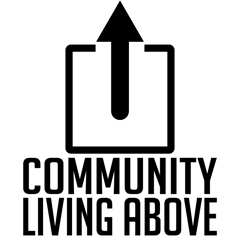Teen Advisory Board
TAB students and community leaders join forces to bring awareness to the importance of substance use prevention education.
TAB students speak at U of O, bringing awareness to the importance of primary prevention education.
The Teen Advisory Board (TAB) is a high school student club at West Linn High School changing how we view and speak of substance use/misuse, dependency, disorders, and mental health promotion. Students of each grade level at West Linn High School comprise the Teen Advisory Board. These courageous, thoughtful, and supportive TAB students are more than 100+ strong today. They provide input and critical feedback to Community Living Above regarding teen and community activities and events that bring awareness, education, and advocacy to support preventing substance use as a youth.
The vision is to bring awareness and education to the forefront, learn and share facts about substance use/misuse, and understand risk and protective factors to help keep themselves and those around them safe and healthy. So much is learning how to have conversations that heal and not hurt. Ultimately, change the social norm from "all kids do it" to one that shares "delaying use will work best for me."
These student leaders understand the importance of "making a difference" through their involvement in projects that help send peer-to-peer messages that positively impact others in their community. Events that they create and or participate in, like with Chris Herren (pictured here), whose message is focusing on “the first day and not the worst day.” Ryan Leaf also came to our area to share his inspirational message of hope and healing.
National projects and events like the National Drug and Alcohol Fact Week (pictured here) and the Herren Project give people of all ages the tools they need to make healthy choices and live happy, fulfilling lives, which is vital to the prevention of substance use disorder. Herren Project’s prevention and wellness initiatives aim to prevent substance misuse, empower those affected by the disease of addiction, and encourage overall well-being.
One of the most important things the TAB students shared is that most teens do not "use" substances, and their voices need to be heard and supported. For those who find they need help and support, there is a safe place to have those conversations, too.
Many students have reasons for choosing not to "use. " Their ideas can help change the social norm that says, "All kids do it, and they'll grow out of it." Prevention education and understanding genetics and our environments play an essential role in how to help and support ourselves and others regarding substance use.
Prevention understands that delaying use and finding the necessary support in the teen years can have a lifetime effect on many aspects of a community, our country, and our world. Support, grace, and acceptance are imperative and will happen by sharing information, experiences, and emotional support, ultimately giving hope.



